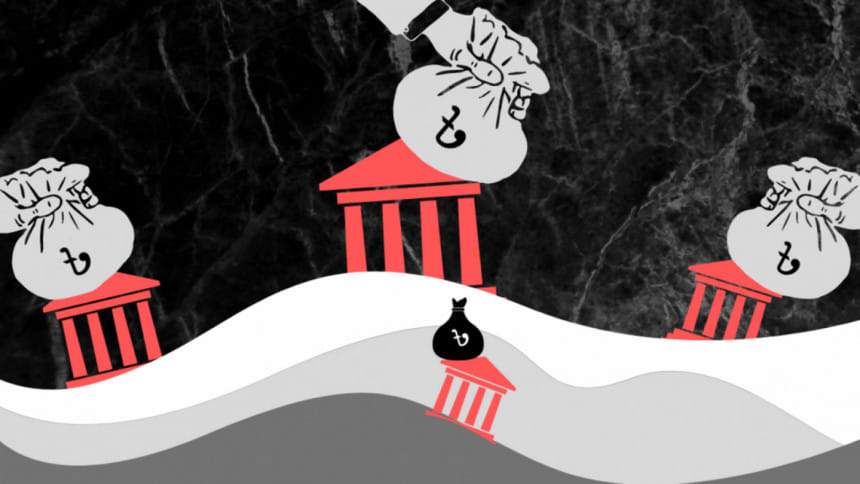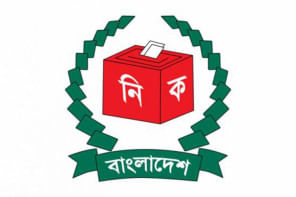The non-performing loans and dilemmas for our lending institutions

The macroeconomic challenges of Bangladesh keep accelerating due to the constant presence of nonperforming loans in the banking sector. More alarming is that the defaulter-borrowers consider themselves Cronus, the disloyal God of Greek mythology having a tendency of betraying those who had helped them in need. As a device to deceive they deploy complex legal and judicial mechanisms.
The honourable High Court Division, which was supposed to be the dernier ressort for justice-seeking people, has the Achille's hill inside its system which in fact is the biggest strength for true justice seekers. Interestingly however, the delinquent borrowers portray themselves as victims, claiming violations of their rights by banks and other financial institutions.
When a customer borrows money with a promise to pay back and then defaults on repaying the loan on specified dates, lending institutions have a legal right to file a case with the Artha Rin Adalat under the provisions of Artha Rin Adalat Ain 2003. According to section 12(3) of the Act, an attempt to sell the property has to be made before filing suit under the Artha Rin Adalat. However, whenever an auction notice is published in a newspaper for selling the mortgaged property, following the mandate of law, the defaulter-borrowers go on to file a writ petition with the High Court Division claiming the cancellation of the auction. However, courts in such cases usually order a stay of the auction procedures for a particular period without putting any bar on filing Artha Rin suits.
Following the filing of the writ petition, courts give directions to the defaulter-borrowers to deposit a certain amount of money to the bank within a specified period; the stay order remains vacated after the period so specified by the court passes. As a matter of fact, borrowers virtually never come forward to pay back and the purpose of filing the writs tends to be nothing but a delaying tactic.
Pursuant to section 22 of the Artha Rin Adalat Ain 2003, a party to a financial dispute may seek mediation with a banking institution in the event of defaulting on payment obligations. It has been observed that clients occasionally exploit this provision to their advantage by instituting writ petitions alleging that the banks failed to approve their proposal for mediation. However, on many occasions, the clients remain absent on the scheduled dates for mediation. This practice too appears to be a strategic manoeuvre intended to delay the proceedings. Furthermore, the defaulter-borrowers file petitions challenging the decree of courts passed in favour of Banks, which are construed on rather unreasonable grounds. This practice is also liable to kill time to recover money lent by banks— which are simply hard-earned money of the tax-paying people. On a further note, clients also file writ petitions challenging the decretal amount mentioned in the judgment by the courts. Assessing the legal process and practical experience, it appears that the legal routes are not really helping the institutions recover money. Even after obtaining a favourable decree, the purpose is not fulfilled as the clients keep delaying and thereby avoid payment (mis)using judicial and legal channels.
The borrowing clients take loans with a promise to make repayment as per the terms and conditions of the banks, whereas, back in their mind, they already plan not to pay back and rather to misuse the herculean fora of law, the de facto purpose of which was to build a shield against the actual offenders. It is high time that the honourable High Court Division started looking into every matter meticulously to understand the actual purpose of filing writ petitions or other High Court Division matters which may potentially prevent our legal system from being abused by the impostor justice seekers. It is recommended that the High Court Division, ex officio, precludes unwarranted writs, prevents the proliferation of writs filed with ill motives, and thereby conserves valuable time and judicial resources.
The writer is the In-charge, Legal Unit of Bangladesh Infrastructure Finance Fund Limited (BIFFL) (Specialized Financial Institution Owned by The Ministry of Finance, Government of Bangladesh).

 For all latest news, follow The Daily Star's Google News channel.
For all latest news, follow The Daily Star's Google News channel. 



Comments